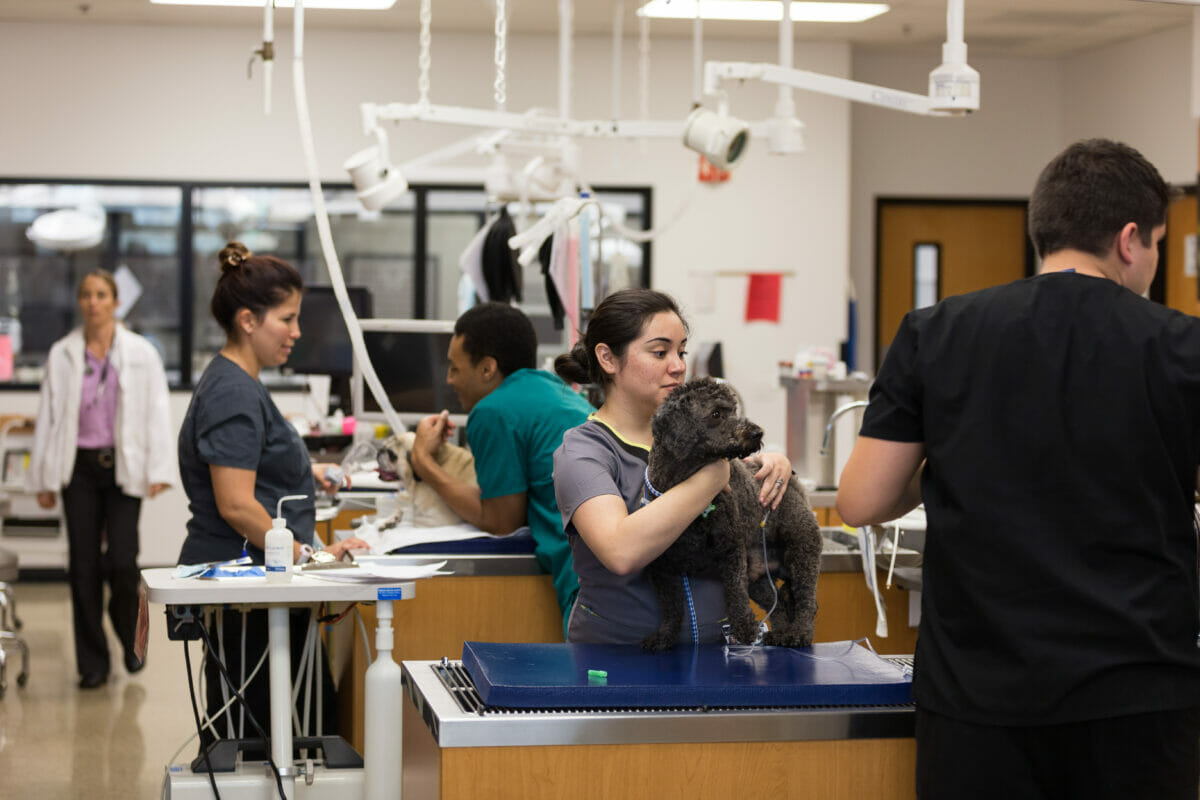
Pet Health Center Services
We believe that the well-being and joy of your cherished furry companions should take center stage! Within our Pet Health Center, an exquisite fusion of empathetic care and academic distinction awaits. Our ensemble of accomplished veterinarians represents a rich tapestry of expertise, affording us the privilege to present an extensive array of specialties and disciplines all within a singular destination.
We take immense pride in not only offering an unmatched level of service, but also in cultivating an educational environment for budding veterinarians. This tradition of exceptional support for our community, intertwined with the training of brilliant veterinarians who will continue the same caliber of care post-graduation, stands as our hallmark.
Our seasoned cohort of veterinarians and dedicated staff harmoniously collaborate to ensure your pets receive outstanding care. We cordially invite you to delve into the spectrum of services we proudly offer and allow us to demonstrate how we can be of service to you. While we do not list our prices online, we encourage you to reach out to us so we can provide you with more information based on your unique and individual needs.
Routine physical exams for your pet’s wellness
Regular wellness exams are one of the most important things you can do to keep your pet healthy. At a bare minimum, the American Animal Hospital Association advocates for annual wellness assessments, with a growing frequency of visits as your pet advances in age. We believe strongly in preventive care and have developed wellness protocols for every stage of your pet’s life.
One of the most important reasons to bring your pet in on a regular basis is to detect, monitor, and/or treat conditions before they become untreatable. Since pets can’t vocalize how they are feeling, illness or disease may be present before you are aware of symptoms. The benefit of early detection allows time for steps to be taken to manage or correct a problem before irreversible damage occurs. Regular check-ups are one of the best ways you can ensure a long, healthy life for your animal friend.
Our Wellness Exam
During a wellness checkup, our veterinary team will begin by assessing your pet’s vital signs. Your veterinarian will inquire about your pet’s overall health history, covering factors like eating habits, exercise, and any unusual behavior. They will then conduct a thorough physical examination, checking your pet from nose to tail. This might involve running diagnostic tests like blood work, urinalysis, or intestinal parasite tests. Depending on your pet’s life stage, vaccines may also be administered. Additionally, disease screenings (such as heartworm, kidney, liver, and blood disorder tests) could be recommended based on your pet’s current health status.
These checkups don’t necessarily mean subjecting your pet to complex or expensive medical procedures. While some animals might require closer monitoring with tests like blood work or x-rays, many pets gain significant benefits from a basic physical examination. This examination involves listening to their heart and lungs, assessing their general well-being, and preventing potential major health issues from going unnoticed. Additionally, it allows us to establish baseline values like temperature, body condition, and lab results when your pet is healthy. This information proves invaluable in delivering better care in case of illness or emergencies. Within the scope of a wellness checkup, evaluating dental health and tracking weight are always crucial components, as they may indicate problems that can progress rapidly and have significant impact on your pet’s overall health.
Early detection and correction of medical problems help to ensure that your pet will live a long, healthy and active life.
Parasite and Flea Control
Intestinal parasites like hookworms and roundworms pose a notable concern, especially for very young animals. The majority of puppies and kittens are born with these worms, and dogs and cats remain vulnerable to these harmful parasites throughout their lives. Since these worms live inside your pet, identifying symptoms becomes challenging, and their presence is usually confirmed through fecal analysis. Certain internal parasites can also be transmitted to both children and adults, leading to illnesses in humans. To ensure the well-being of your new puppies and kittens, and to keep your human companions safe, our hospital conducts fecal analyses as a standard procedure. If your pet does have a parasite problem, our veterinarians can provide you with medications and treatments to remedy the problem and steer your pet back to good health.
Like most pet owners, you probably enjoy spending quality time with your pets both indoors and out. Don’t leave them at risk for any unwelcome visits from pesky parasites like fleas and ticks, which can be very damaging to the human-animal bond, particularly when flea invasion gets out of control or when ticks hitch a ride with your pet. Even worse, fleas are incredibly resilient and are able to survive a cold winter by feeding on unprotected pets, then become even more active whenever it is warm enough outside for them to crawl about their surroundings. Not only can these unfriendly parasites make your pets extremely uncomfortable, they can pose grave health risks. Therefore, preventive measures should be taken year round. By undergoing measures to inhibit these outbreaks, the diseases these parasites transmit to pets and people can also be mitigated or prevented.
There are many safe and effective flea and tick control products available, and our veterinary team will help you choose the correct preventive regimen based on your pet’s risk factors and health status. Once a year, it is important to discuss with your veterinarian which external pest control products are ideal for your household, based upon the everyday life of your pet.
 Laboratory
Laboratory
Safeguarding your pet’s well-being is our top priority, which is why we maintain a comprehensive in-house veterinary diagnostic laboratory. This facility allows us to conduct a diverse array of tests on blood, urine, feces, and biopsied tissues, and gives us timely access to test outcomes that are essential for ensuring precise diagnoses and evaluations of your pet’s health. These test results play a pivotal role in identifying diseases and other health-related concerns in their early stages, contributing to the overall health and welfare of your pet.
This same in-house laboratory allows us to perform many diagnostic tests with rapid results, aiding in the prompt development of appropriate treatment options for our patients. We are able to perform a wide array of tests, including basic blood panels to gauge overall health and organ function, along with specialized blood tests to detect conditions like heartworm disease, feline leukemia, pancreatitis, anticoagulant poisoning, and thyroid disease. Using a microscope, we have the ability to evaluate for skin and ear infections, blood-borne parasites, and cancerous masses, changes in liver or kidney function or simply provide a baseline for future reference. Diagnostic laboratory testing is also completed prior to dental or surgical procedures that require general anesthesia.
Laboratory testing provides information about your pet’s overall systemic health without the need for invasive and expensive procedures. Thanks to our full in-house diagnostic laboratory, we deliver your pet’s test results quickly — often within a few minutes — minimizing the time you need to wait for an accurate diagnosis and treatment plan. We also utilize two outside laboratories that can perform a vast array of testing. Once or twice daily pickups of laboratory samples allows for quick processing and evaluation.
When our animal companions are not feeling well, they can’t tell us what’s wrong or where it hurts. That’s why veterinary diagnostics are so important. These invaluable tools allow our veterinarians to delve deeper – below the surface of the skin – to quickly and accurately identify, diagnose and treat whatever is ailing your pet. This early diagnosis can help improve the chances of a quick and full recovery for your pet.

Pet Surgery
In our ongoing commitment to deliver top-tier veterinary care, our hospital features state of the art surgical facilities, advanced anesthetic monitoring, and a comprehensive range of treatment options for your pets. We take pride in offering a diverse array of surgical services, from routine procedures like spaying and neutering to intricate orthopedic surgeries.
Our team of highly proficient veterinary surgeons is dedicated to ensuring your pet’s well-being. We prioritize patient safety, effective pain management, and the implementation of the latest surgical techniques to surpass your expectations and alleviate any concerns you may have. Our compassionate and caring professionals vigilantly oversee your pet throughout every stage of surgery, from pre-operative preparation to a safe and successful recovery.
To ensure the utmost precaution, all of our patients undergo pre-operative blood testing to determine the ideal anesthetic medications and doses. In addition to this, all patients have pain medication prepared prior to induction of anesthesia or any surgical procedure. Intravenous catheters are also utilized to provide fluid support during surgery, as well as an emergency injection port for added security. A Registered Veterinary Technician (RVT) closely monitors your pet throughout the procedure and recovery. Similar to human medicine, vital signs such as heart rate, respiration, blood pressure, temperature, and oxygenation are recorded using advanced monitoring systems to ensure your companion remains stable and safe.
Similar to humans, pets in pain endure more than just physical discomfort; it can hinder healing and exacerbate conditions like arthritis. Moreover, pain can lead to behavioral issues, including aggression, anxiety, and depression, while straining the bond between you and your pet. To minimize your pet’s discomfort, we typically recommend a personalized combination of local anesthetics, NSAIDs, and narcotic pain relievers, tailored to your pet’s specific needs based on the pre-surgery examination and the intended procedure.
We understand that surgery can be a daunting decision for pet owners. At the WesternU Pet Health Center, we empathize with your concerns. Rest assured, we are here to address your worries. When the time comes for your pet to return home, we will provide comprehensive postoperative care instructions and medication guidance. We encourage you to ask any questions you may have about your pet’s surgery, and we consider a pre-surgical consultation an essential part of the process. Our top priority is to equip you with the information you need for a speedy and smooth recovery for your cherished companion.
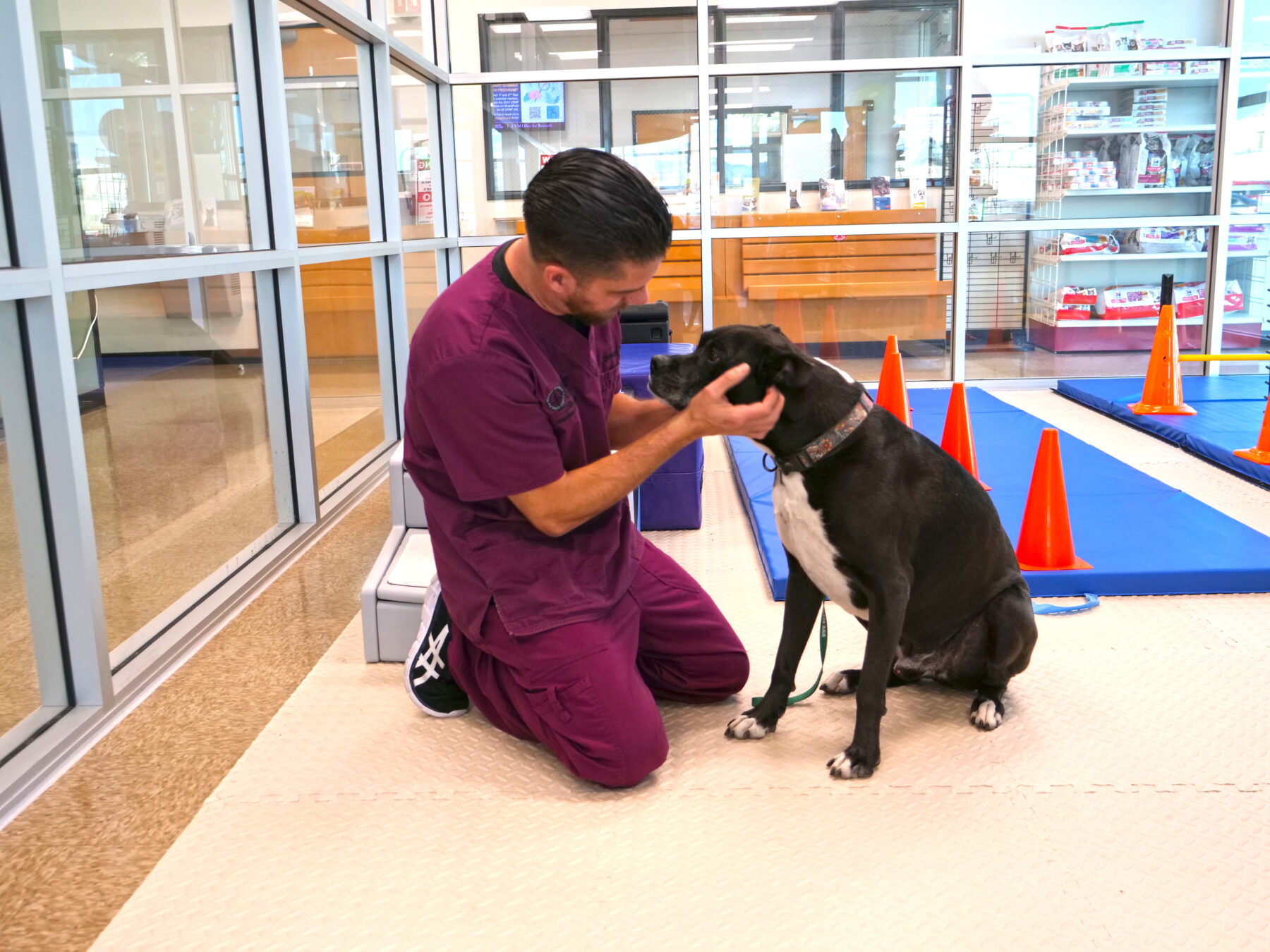
Pet Rehabilitation
Physical Rehabilitation in pets works to alleviate impairment and functional limitation by designing, implementing, and modifying therapeutic interventions that include exercise, manual therapy, wound management, orthotics and prosthetics, electrotherapy, pain management and promoting quality of life in all life stages.
The primary goals of our pet physical rehabilitation center are to decrease pain, swelling, muscle atrophy, and spasms; improve muscle strength and overall function; remodel scar tissue; accelerate healing time; and prevent injuries, impairments, and functional limitations. These objectives aim to enhance the overall well-being and quality of life for pets.
A specialist will work directly with you to establish the right plan for your pet’s unique condition or injury, or on a post-operative plan after join surgery.
 Radiology
Radiology
Radiographs, commonly known as X-rays, play a pivotal role in modern medicine, aiding in the accurate diagnosis of various conditions. When it comes to your pet’s health, our Pet Health Center is dedicated to providing top-notch care. Even after preforming a thorough examination, sometimes veterinary diagnostic tests are necessary to identify the underlying cause of your companion’s illness. Our veterinarians may employ X-rays when they suspect your pet has a fractured bone, has ingested a foreign object, or is experiencing a heart-related issue, or something else beyond the range of an examination may be affecting them. X-rays reveal what the naked eye cannot, ensuring a comprehensive evaluation of your pet’s health, so we rely on veterinary X-rays to meticulously examine your pet’s bones, lungs, heart, abdomen, oral cavity, and other areas. These X-rays serve as invaluable tools in diagnosing and monitoring numerous medical and surgical conditions.
As part of our unwavering commitment to offering the finest veterinary care for your pet, the WesternU Pet Health Center has invested in state-of-the-art digital X-ray technology. Here are some key advantages of our digital X-rays:
- Immediate Viewing: Digital X-rays can be viewed instantly on a computer monitor, allowing for swift assessment.
- Detailed Imaging: X-rays provide clear, detailed images that can be manipulated to offer a more profound understanding of your pet’s bones and internal organs. This leads to quicker and more precise diagnoses.
- Reduced Waiting Time: Digital X-rays require less processing time, meaning your pet spends less time on the X-ray table, resulting in reduced stress. It also means less waiting time for you.
- Environmentally Friendly: No harsh chemicals are required to develop the images, which not only benefits our staff but also contributes to environmental preservation.
In the realm of veterinary medicine, advanced diagnostic capabilities are paramount, especially since our patients can’t communicate their ailments verbally. Our investment in digital X-ray technology underscores our commitment to providing you and your cherished pet with the most exceptional and comprehensive healthcare available.
At the WesternU Pet Health Center, your pet’s well-being is our priority, and our digital X-rays play a pivotal role in ensuring their health and happiness. Experience the difference with our state-of-the-art diagnostic tools today!
Ultrasound
At The Pet Health Center, we are equipped to provide abdominal ultrasounds when needed, offering a detailed evaluation of your pet’s internal organs. Ultrasound, a non-invasive, painless imaging technique, employs high-frequency sound waves to create precise images of the body’s internal workings.
Our ultrasound examinations serve many purposes, including:
- In-Depth Evaluation: Ultrasound allows us to assess the size, shape, location, internal structure, and function of concealed internal organs. In the chest area, diagnostic ultrasound is invaluable for identifying tumors, fluid accumulation, and evaluating the heart’s condition. In the abdominal region, it proves especially valuable for imaging vital organs such as the liver, spleen, gall bladder, kidneys, lymph nodes, adrenal glands, and urinary bladder. Furthermore, we rely on ultrasound to guide us in diagnostic procedures such as urine collection and organ/tumor biopsies.
- Fluid Detection: These painless exams can swiftly detect the presence of abnormal fluid and variations in organ tissue density, whether in the chest or abdominal regions.
- Pregnancy Monitoring: Ultrasound is a safe tool to diagnose and/or monitor pregnancy status in animals while causing no harm to developing fetuses.
- A detailed guide: Ultrasound is commonly used to guide us in diagnostic procedures such as urine collection and the biopsy of internal organs and tumors.
As part of our commitment to providing the highest quality veterinary medicine and diagnostics, The Pet Health Center proudly offers advanced ultrasound services. Our state-of-the-art technology ensures precise and painless examinations, enabling us to deliver the best possible care for your beloved pets.
 Routine dental exams and professional cleaning
Routine dental exams and professional cleaning
Here at the WesternU Pet Health Center, we prioritize your beloved pet’s preventive dental care with warmth and dedication. Our friendly veterinarians conduct basic oral exams as part of your pet’s regular checkup. For our adorable puppies and kittens, we meticulously inspect for any issues related to their baby teeth, tooth anomalies, swellings, and overall oral development. Meanwhile, our adult and senior pets receive comprehensive evaluations, including assessments for developmental irregularities, plaque and tartar buildup, periodontal concerns, and potential oral tumors.
Did you know that 80% of dogs and 70% of cats display signs of oral disease by the tender age of 3? Dental disease doesn’t affect just the mouth– it can actually lead to more severe health conditions, such as heart, lung, and kidney diseases. That’s why ensuring your pets receive proper dental care from the beginning is paramount. Following guidelines from the American Animal Hospital Association, we recommend veterinary dental procedures at least annually for cats and small-breed dogs starting at one year of age, and at two years of age for large-breed dogs.
Depending on your pet’s specific needs, your veterinarian may offer a range of options to promote your pet’s dental health. This could include brushing your pet’s teeth, providing dental chews or pet-safe mouthwash, or taking advantage of professional dental cleanings administered by our skilled veterinary team.
Prior to these professional cleanings, our hospital staff will obtain a blood sample to determine whether or not your pet is a good candidate for anesthesia. Once the staff is confident that your pet is a good candidate for anesthesia and dental procedure, your pet will be placed on IV fluids. Your pet will then be monitored, by a trained professional while a Registered Veterinary Technician performs a professional scaling and polishing of your pet’s teeth. Once the pet is recovered after surgery, they are closely monitored until they are safely picked up at the end of the day. At that time, a veterinary technician will provide go-home instructions and what to expect when at home, keeping you well informed throughout the whole process.
Before any professional cleaning, our dedicated staff will conduct a blood test to ensure your pet is a suitable candidate for anesthesia. Once we’re confident in your pet’s eligibility for the procedure, they’ll receive intravenous fluids. Throughout the process, a trained professional will monitor your pet while a Registered Veterinary Technician performs a thorough scaling and polishing of their teeth. After the surgery, your pet will be closely observed until you can safely pick them up at the end of the day. We’ll provide you with clear go-home instructions and prepare you for what to expect while your pet continues to recover at home, keeping you well-informed every step of the way.
Routine and preventive dental care is vital to your pet’s long-term health. Pets with poor oral hygiene can develop periodontal disease, which can often lead to heart, lung, and kidney disease. WesternU Pet Health Center offers a full range of dental services for cats and dogs including dental examinations, dental extractions, and oral surgery, as well as home care instructions for keeping your dog’s or cat’s teeth clean and healthy. Dental exams, coupled with routine check-ups and at-home care, can be a great preventive tool for your pets.
 Vaccinations
Vaccinations
Vaccinations play a crucial role in safeguarding your pet’s well-being, serving as a proactive defense against viral diseases such as Parvovirus, Parainfluenza virus, Distemper, Lyme disease, Panleukopenia, Feline Leukemia Virus, and Rabies. These vaccinations are always accompanied by a veterinary consultation and examination to ensure your pet’s condition is stable enough to receive them.
Vaccinations empower your pet’s immune system by introducing controlled, inactive, or minimal amounts of specific bacteria or viruses. The key to achieving optimal protection lies in the proper and timely administration of these vaccines. Vaccinations are particularly important for young animals with developing immune systems. Typically, vaccination protocols commence at 6-8 weeks of age and continue at three to four-week intervals until the full series is completed. This meticulous approach ensures your beloved companion receives the best possible defense against potential health threats.
Our experienced veterinarians will help you decide what vaccines are the most suitable for your pet based on their individual risk factors.
 Acupuncture
Acupuncture
When it comes to your beloved pet’s well-being, consider the benefits of veterinary acupuncture. Veterinary acupuncture, which has steadily been gaining popularity due to its numerous advantages, can often compliment the care, traditional medication and nutrition your animal companion may already be receiving.When administered by a certified veterinary acupuncturist, acupuncture is a safe and effective treatment for your pet.
Acupuncture has been used for thousands of years to effectively address ailments in both people and animals. Rooted in Chinese medicine, acupuncture is a form of treatment where sterile needles are inserted into specific points on the body to produce a desired response. It can stimulate nerves, increase blood circulation, relieve muscle spasms, reduce inflammation, and activate the body’s natural pain control. At the WesternU Pet Health Center, we often employ ‘dry needling’ with sterile needles in our pet treatments. However, some pets may benefit from electro-acupuncture, where needles are typically left in place for 10 to 20 minutes.
Acupuncture can be used as a standalone therapy or in combination with other treatments and medications. In some cases, it may even reduce the amount of medication your pet requires. The primary objectives of acupuncture are to restore balance within the body and enhance the patient’s quality of life, though not necessarily bring about a cure. During each session, our approach is to identify any imbalances and formulate a personalized plan to restore equilibrium through acupuncture, possibly incorporating herbs or dietary adjustments.
Most pets tolerate acupuncture exceptionally well, often finding it calming and relaxing. Our experienced veterinarians can effectively treat pets with conditions such as hind limb weakness or paralysis, cancer, severe arthritis, behavioral issues, and more. Your dedicated veterinary acupuncturist will conduct a comprehensive physical examination, review your pet’s medical records, and assess test results before tailoring a customized treatment plan for your furry companion.
If you’re curious about how acupuncture can bring relief to your furry friend and want more information on what to expect, please don’t hesitate to reach out to us. We’re here to answer all your questions. Contact WesternU Pet Health Center today for holistic pet care that includes acupuncture therapy. Your pet deserves the best, and we’re here to provide it.
 A Healthy Diet
A Healthy Diet
Discovering the perfect pet food can be a daunting task! At WesternU Pet Health Center, our approach to pet nutrition is firmly rooted in scientific principles, and we’re here to guide you every step of the way!
Precisely balanced nutrition stands as a cornerstone of your pet’s overall well-being and development. For example, during their first year, puppies and kittens require optimal nutrition to meet their high-energy demands and ensure proper growth. Typically, around the 10-12 month mark, or after a spay/neuter procedure, it’s advisable to transition to adult food.
Furthermore, ensuring the right blend of nutrients is essential to promoting good health, impacting your pet’s longevity and quality of life. As your pet ages, transitioning to appropriate foods at key life stages (usually around ages 1 and 5 [for large breeds], and again at age 7) helps address the changing needs associated with aging. Treats should comprise no more than 10% of your pet’s total diet.
Our extensive range of nutritious pet food options is designed to cater to your pet’s unique needs and includes a comprehensive selection of wholesome foods to keep your furry companion in peak condition. We also stock a diverse array of specialized and therapeutic diets suitable for all life stages and various medical conditions. Finally, we provide a range of supplements to support general well-being and manage acute or chronic health issues.
In the event that you can’t find the perfect solution within our current inventory, rest assured, we have even more options. We can facilitate special orders for specific foods, connect you with homemade diet plans, and assist you in identifying the ideal nourishment for your pet. Please be aware that our prescription diet foods and supplements require veterinary consultation for access. Your pet’s well-being is our priority, and we’re here to help you make informed choices.



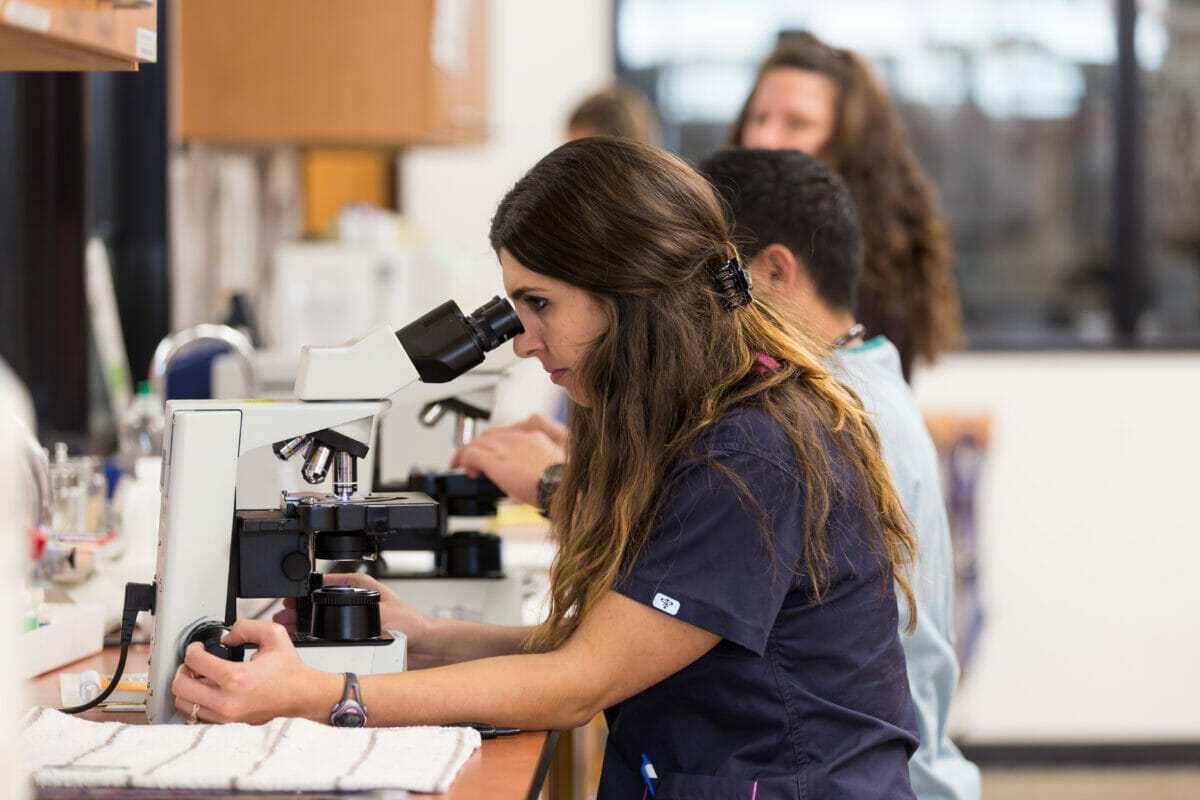 Laboratory
Laboratory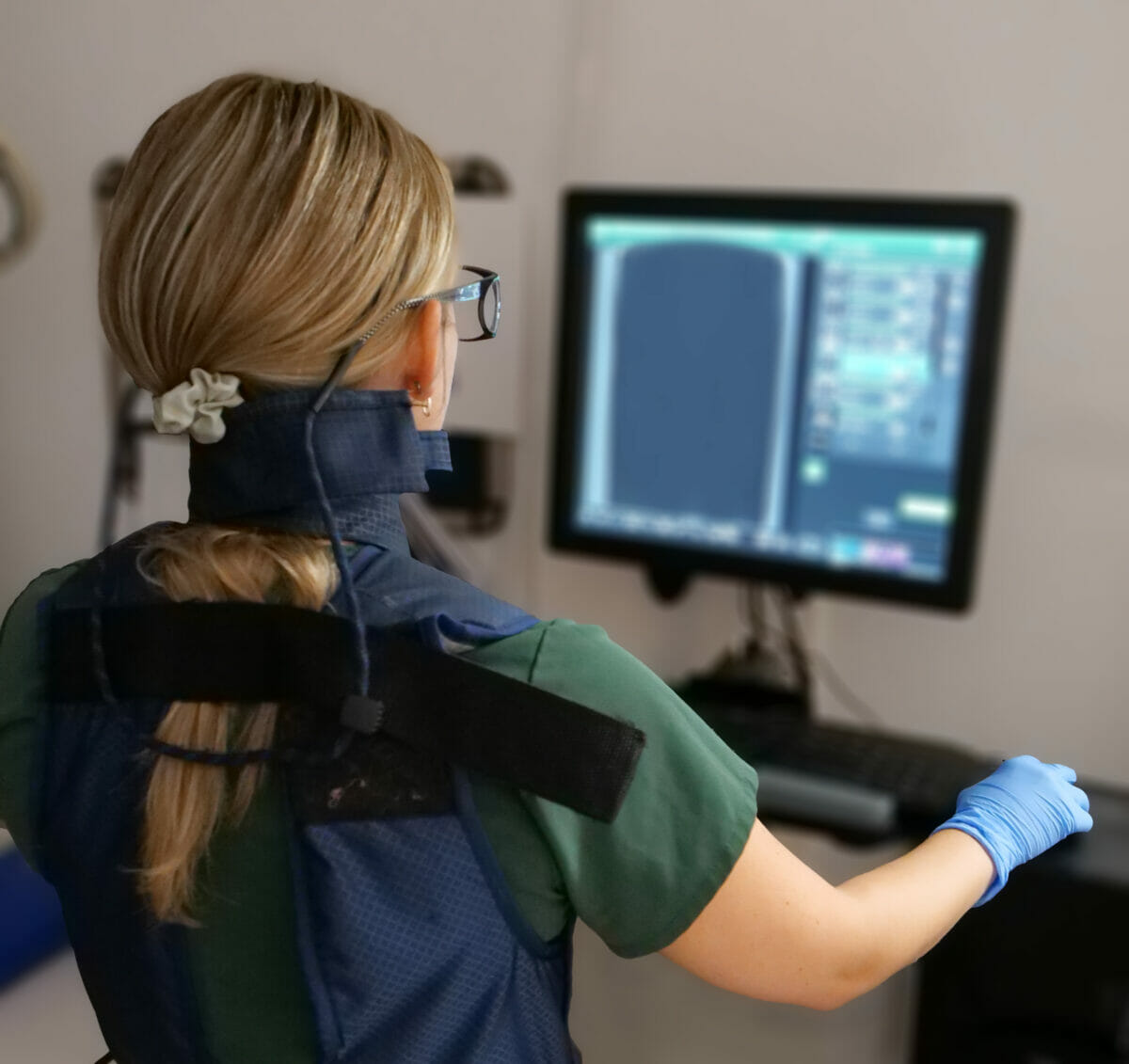 Radiology
Radiology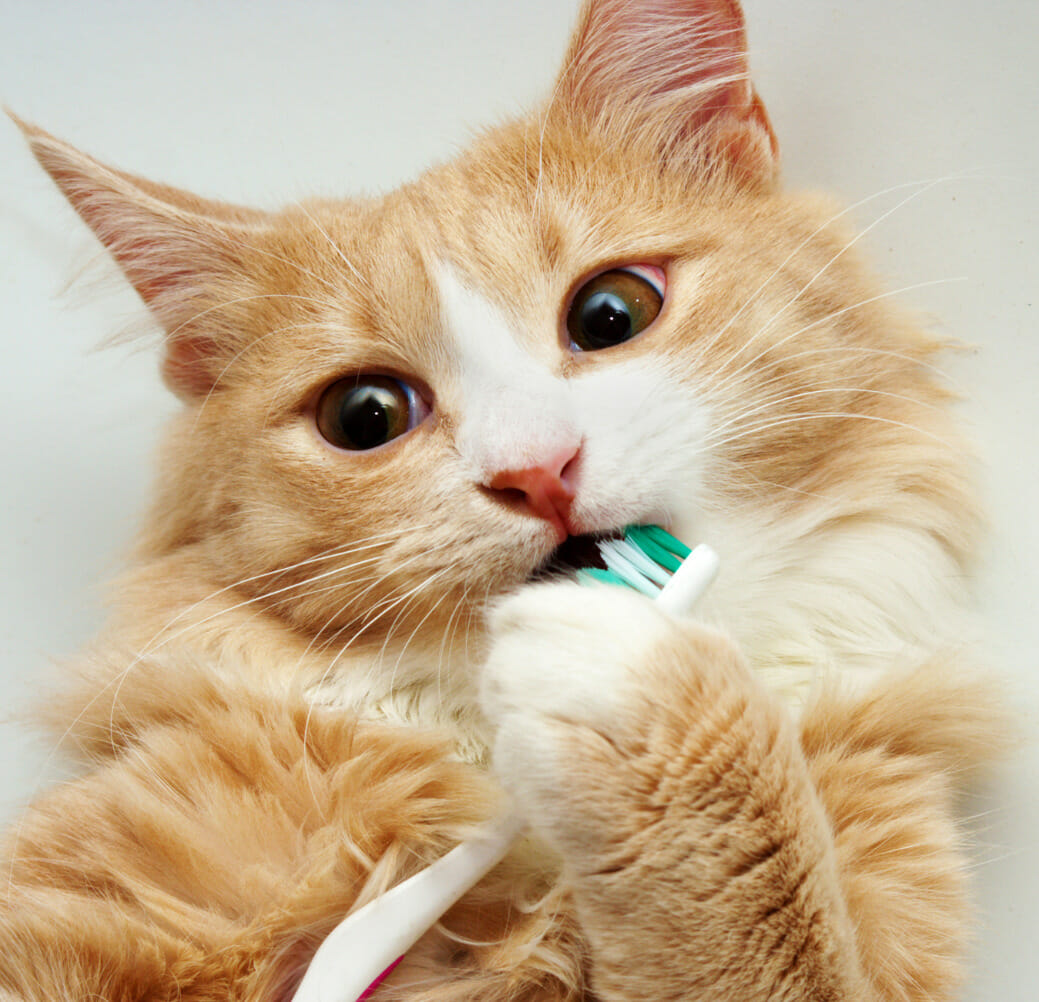 Routine dental exams and professional cleaning
Routine dental exams and professional cleaning Vaccinations
Vaccinations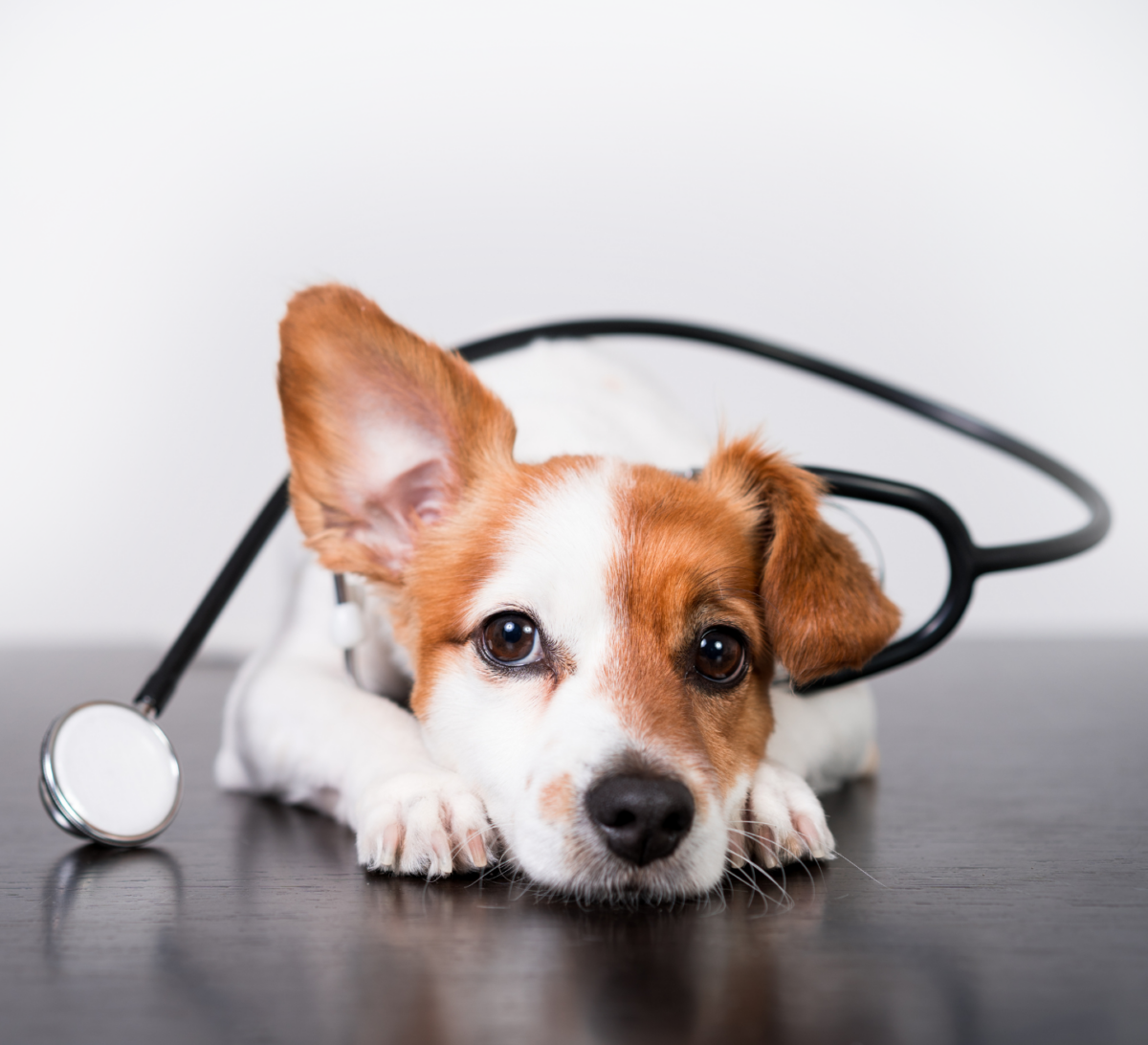 Acupuncture
Acupuncture A Healthy Diet
A Healthy Diet